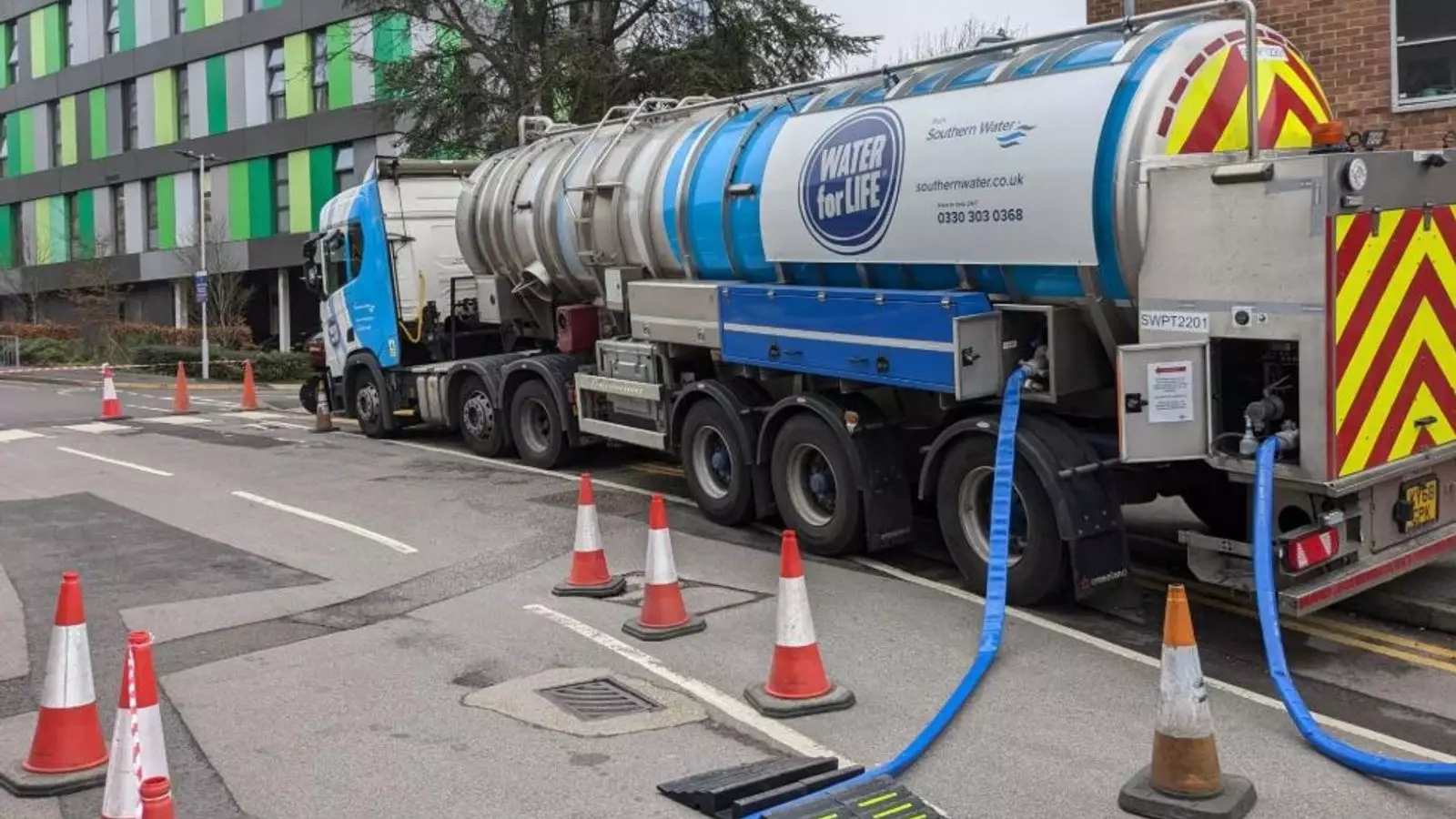In an alarming incident affecting nearly 60,000 households in Hampshire, a significant disruption to water supply has been reported due to a “technical issue” at Southern Water’s Testwood supply works. This situation has critically impacted communities in Southampton, Romsey, Eastleigh, Totton, and areas within the New Forest. The failure of the infrastructure to distribute water effectively has drawn immediate concern from residents who have been left without access to this essential resource. In an effort to mitigate the inconvenience, Southern Water has set up emergency bottle stations in prominent locations such as the Places Leisure Centre in Eastleigh, Sainsbury’s superstore in Southampton, and Asda superstore in Totton. The sight of long queues forming at these stations underscores the urgency of the situation as residents scramble to procure drinking water.
Southern Water has publicly acknowledged the chaos and has committed to resolving the water supply issues as quickly as possible. The company has implemented measures to prioritize customers on their vulnerable persons list, ensuring that those who are most in need still receive deliveries. However, despite assurances that efforts are being made to restore supply, Southern Water indicated that complete recovery may not occur until the weekend. Their website communicates a cautious optimism, hoping for partial restoration throughout Thursday, but urging patience and understanding from the public.
The ongoing crisis occurs during a pivotal moment of financial discussion surrounding water services in England and Wales. Amidst this supply turmoil, water companies are preparing to inform customers about impending bill increases, with Southern Water petitioning for a staggering 84% rise in charges. Such increases coincide painfully with residents’ current struggles for reliable water access.
The proposed hikes in water bills are poised to affect families overstretched by rising living costs. Ofwat, the regulatory body, has suggested that consumer bills might see an average increase of over 20% through 2030, effectively raising annual expenditures from £448 to £542 per household. This forecast, based on draft decisions released earlier in July, aims to support an investment of £88 billion into enhancing water services and environmental standards. While these investments could lead to improved infrastructure in the long term, the immediate consequences of rising charges during a crisis may breed resentment and frustration among consumers who already feel burdened.
As Southern Water navigates the complexities of restoring supply and managing customer relations, the company faces heightened scrutiny regarding its accountability and reliability in service provision. The potential disconnect between infrastructural shortcomings and the proposed financial increases raises critical questions about the efficacy of water management across the region. For affected residents, securing access to clean water remains the foremost concern, while broader discussions about fair pricing and service standards linger in the background. Ultimately, the experiences of Hampshire residents during this crisis could catalyze demands for greater transparency and reform within the water utility sector, impacting future policymaking and customer relations.


Leave a Reply